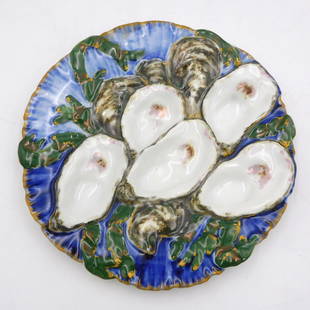
Poster, FBI Wanted Poster for Angela Davis, c1970
Similar Sale History
View More Items in Political MemorabiliaRelated Political Memorabilia
More Items in Political Memorabilia
View MoreRecommended Historical Memorabilia
View More







Item Details
Description
Description:
A FBI wanted poster of Angela Yvonne Davis, wanted for interstate flight and murder, FBI # 867 615 G. Wanted flyer 457 August 18, 1970. The wanted flyer gives her description and alias, as well as has a signature from the FBI director J Edgar Hoover.
Material:
Paper
Maker/Artist:
FBI
Date:
1970
Provenance:
Florida estate
Size of Artwork:
H.10.5 x W. 16 x D. 1 in
Weight (LBS)
.075
Condition:
In good condition, address and phone numbers for FBI that are printed on the verso are covered with card.
History:
Angela Yvonne Davis (born January 26, 1944) is an American political activist, scholar, and author. She emerged as a prominent counterculture activist and radical in the 1960s as a leader of the Communist Party USA, and had close relations with the Black Panther Party through her involvement in the Civil Rights Movement, although she was never a party member. Her interests included prisoner rights; she founded Critical Resistance, an organization working to abolish the prison-industrial complex. She is a retired professor with the History of Consciousness Department at the University of California, Santa Cruz, and a former director of the university's Feminist Studies department.Davis was arrested, charged, tried, and acquitted of conspiracy in the 1970 armed take-over of a Marin County courtroom, in which four persons died.Her research interests are feminism, African-American studies, critical theory, Marxism, popular music, social consciousness, and the philosophy and history of punishment and prisons. Her membership in the Communist Party led to Ronald Reagan's request in 1969 to have her barred from teaching at any university in the State of California. She was twice a candidate for Vice President on the Communist Party USA ticket during the 1980s.On August 7, 1970, Jonathan Jackson, a heavily armed 17-year-old African-American high-school student, gained control over a courtroom in Marin County, California. Once in the courtroom, Jackson armed the black defendants and took Judge Harold Haley, the prosecutor, and three female jurors as hostages. As Jackson transported the hostages and two black convicts away from the courtroom, the police began shooting at the vehicle. The judge and the three black men were killed in the melee; one of the jurors and the prosecutor were injured. The firearms used in the attack, including the shotgun used to kill Haley, had been purchased by Davis two days prior and the barrel of the shotgun had been sawed off. Davis was also corresponding with one of the inmates involved. Since California considers "all persons concerned in the commission of a crime, whether they directly commit the act constituting the offense... principals in any crime so committed", Marin County Superior Judge Peter Allen Smith charged Davis with "aggravated kidnapping and first degree murder in the death of Judge Harold Haley" and issued a warrant for her arrest. Hours after the judge issued the warrant on August 14, 1970, a massive attempt to arrest Angela Davis began. On August 18, 1970, four days after the initial warrant was issued, the FBI director J. Edgar Hoover made Angela Davis the third woman and the 309th person to appear on the FBI's Ten Most Wanted Fugitive List.Soon after, Davis became a fugitive and fled California. According to her autobiography, during this time she hid in friends' homes and moved from place to place at night. On October 13, 1970, FBI agents found her at the Howard Johnson Motor Lodge in New York City. President Richard M. Nixon congratulated the FBI on its "capture of the dangerous terrorist, Angela Davis".Angela Davis with Valentina TereshkovaOn January 5, 1971, after several months in jail, Davis appeared at the Marin County Superior Court and declared her innocence before the court and nation: "I now declare publicly before the court, before the people of this country that I am innocent of all charges which have been leveled against me by the state of California." John Abt, general counsel of the Communist Party USA, was one of the first attorneys to represent Davis for her alleged involvement in the shootings. While being held in the Women's Detention Center there, she was initially segregated from the general population, but with the help of her legal team soon obtained a federal court order to get out of the segregated area.Angela Davis and Erich Honecker in GDR, 1972Across the nation, thousands of people who agreed with her declaration began organizing a liberation movement. In New York City, black writers formed a committee called the Black People in Defense of Angela Davis. By February 1971 more than 200 local committees in the United States, and 67 in foreign countries worked to liberate Angela Davis from prison. Thanks, in part, to this support, in 1972 the state released her from county jail. On February 23, 1972, Rodger McAfee, a dairy farmer from Fresno, California, paid her $100,000 bail with the help of Steve Sparacino, a wealthy business owner. Portions of her legal defense expenses were paid for by the United Presbyterian Church.Davis was tried, and the all-white jury returned a verdict of not guilty. The fact that she owned the guns used in the crime was judged not sufficient to establish her responsibility for the plot. She was represented by Leo Branton Jr., who hired psychologists to help the defense determine who in the jury pool might favor their arguments, a technique that was uncommon at the time, and also hired experts to undermine the reliability of eyewitness accounts. Her experience as a prisoner in the US played a key role in persuading her to fight against the prison-industrial complex in the United States.On January 28, 1972, Garrett Brock Trapnell hijacked TWA Flight 2. One of his demands was Davis' release.The Rolling Stones song "Sweet Black Angel", recorded in 1970 and released in 1972 on their album Exile on Main Street, is dedicated to Davis and is one of the band's few overtly political releases. However, the first song ever published in the world in favor of Davis was "Angela" (1971), written by Italian singer-songwriter and musician Virgilio Savona with his group (The "Quartetto Cetra"), and for this he received some anonymous threats. John Lennon and Yoko Ono recorded their song "Angela" on their 1972 album Some Time in New York City in support. The jazz musician Todd Cochran, also known as Bayete, recorded his song "Free Angela (Thoughts...and all I've got to say)" that same year. Also in 1972, Tribe Records co-founder Phil Ranelin released a song dedicated to Davis titled "Angela's Dilemma" on Message From The Tribe, a spiritual jazz collectable.After her acquittal, Davis visited Cuba. In doing so she followed the precedents set by her fellow activists Robert F. Williams, Huey Newton, Stokely Carmichael, and Assata Shakur. Her reception by Afro-Cubans at a mass rally was so enthusiastic that she was reportedly barely able to speak. Davis perceived Cuba to be a racism-free country, which led her to believe that "only under socialism could the fight against racism be successfully executed." When she returned to the United States her socialist leanings increasingly influenced her understanding of race struggles within the US.
Buyer's Premium
- 24.5%
Poster, FBI Wanted Poster for Angela Davis, c1970
Estimate $50 - $100
23 bidders are watching this item.
Shipping & Pickup Options
Item located in West Palm Beach, FL , usSee Policy for Shipping
Payment

Related Searches
TOP









































![Ronald Reagan Writes to a Pardoned FBI Agent: "…I couldn't push bureaucracy into a higher spee: Ronald Reagann.p., [ca. 1981]Ronald Reagan Writes to a Pardoned FBI Agent: "…I couldn't push bureaucracy into a higher speed…"Fine content autograph letter signed twice with initials "RR"](https://p1.liveauctioneers.com/6306/327579/176471654_1_x.jpg?height=310&quality=70&version=1714074043)
















![10 Days After His Assassination JFK Signed W. H. letter, Fantastic! Among JFK's Last Acts in White H: John F. Kennedy[Washington, D.C.], December 2, 196310 Days After His Assassination JFK Signed W. H. letter, Fantastic! Among JFK's Last Acts in White House Post Dated Before Dallas TripTLSJOHN F. KENN](https://p1.liveauctioneers.com/6306/327579/176471594_1_x.jpg?height=310&quality=70&version=1714074043)
















